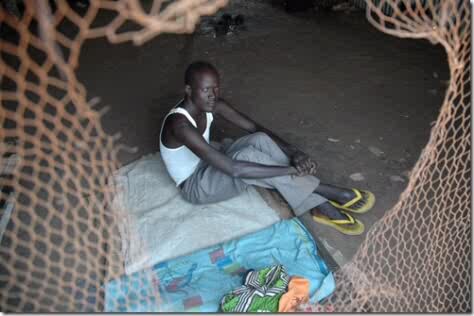
Last night it rained most of the night and today the radio was saying “the rains have arrived” as they forecasted clouds and rain across most of the central and southern parts of the country. The farmers have been preparing their fields for months and will probably move into planting mode this week. In some places where it has already rained, maize is sprouting.
Over the past few weeks I have learned a few things about farming in Malawi:
Lesson #1 — Everybody farms
Well almost everyone, but with over 80% of people in Malawi depending to a great extend upon their farming income and harvest, it is the foundation of the economy. Obviously we all rely upon farmers, but at home it is easy to forget about them. Here in Malawi, farming, even if you live in one of the large cities, is hard to ignore — there are people selling domestically grown food in the streets every day. Even wealthy Malawians will frequently have some land within their walled and guarded grounds to grow some food, typically mazine (aka white corn).
Lesson 2 — Farming can be Controversial
I started this message about three weeks ago when I discovered enormous lineups for subsidized fertilizer. The photo doesn’t give a sense for the scale of hundreds of people waiting to get seeds or fertilizer. It also doesn’t show hundreds of bicycles like the ones in the foreground that will peddle and push a 50kg bag to a near-by village. The door opens at 7:30, I am not sure when the line starts forming — probably very early if you live 10 or 20 kilometers away. These lineups will continue for some more weeks as some people just received their coupons today.
A few weeks ago the lead story in the newspapers was about a large NGO suggesting the government could not sustain the small farmer assistance program and it should be stopped. The President of Malawi says and does a lot of strange things, but I agreed with his response that western nations have substantial subsidies to various industries and they have no grounds for complaining about his government helping poor farmers.
In each village there is a process for deciding who qualifies for subsidy assistance, with input coming from the village chief, a committee and the Agriculture Ministry’s local staff. Being on the list means you will receive four coupons (50kg fertilizer, 50 kg urea fertilizer, maize & legume seeds) and it seems they must come on different days for each item. The subsidized price for the fertilizer is about $3.50 vs the normal $30-$35 list price. Apparently fertilizer this year is half the price of last year. I can only imagine that someone left off the list would not be very happy.
Lesson 3 — Small change, big result
A few weeks ago a colleague from Canada made a short visit to Malawi on her way to Mozambique and Zambia to check some facts and gather some first-hand stories for a report she is helping edit. Nidhi’s contacts took us to visit some farmers who have been using a technique referred to as conservation farming.
Since I arrived in Malawi, I have watched people all across the country hoe their land into long ridges that contour the land — the standard method for growing maize. Everyone grows white corn in Malawi because virtually everyone eats it a couple times per day in the form of nsima. The conservation method creates pits across a field and they generate about 50-100% more yield for the farmers we met. The logic is that the pit holds rain water better and reduces runoff. In a dry year that is critical. The land is also not tilled every year which helps reduce soil loss and also keeps more water in the soil. Some farmers we met also inter-crop — meaning they plant other species within the pits. Beans are the classic because they put nitrogen into the soil while maize consumes it.
Posted with WordPress for BlackBerry.







